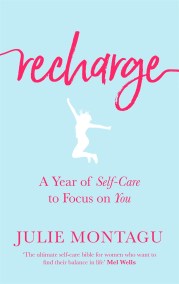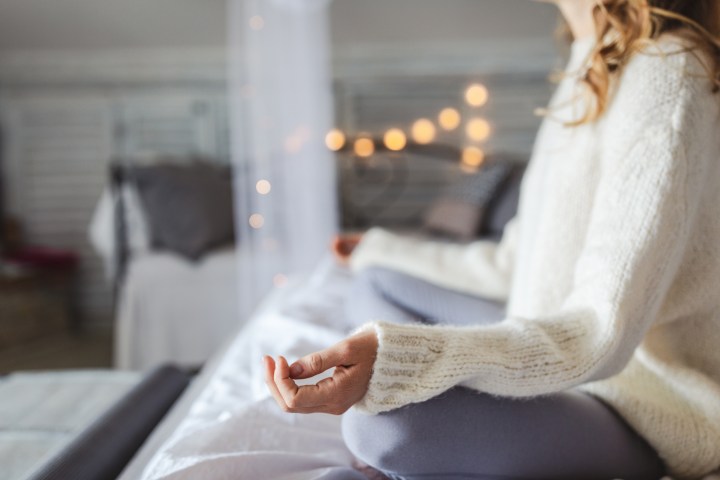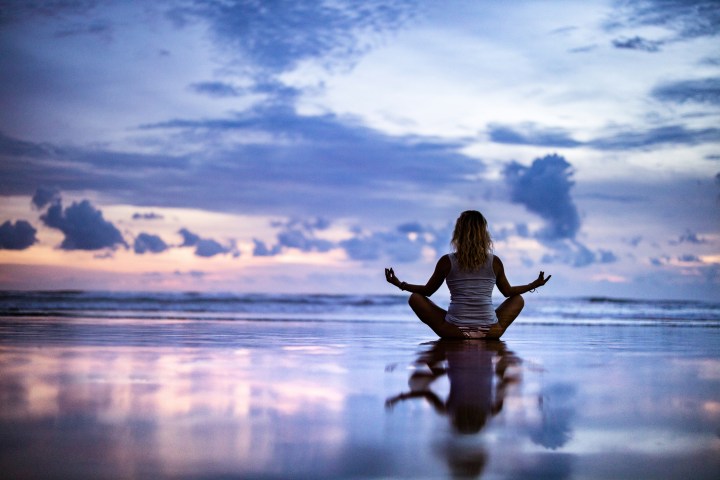Why self-care is important

Amid the chaos of caring for dependent younger and older family members, friends, pets, and physical possessions, we often lose sight of ourselves. Our busy lives and heightening careers mean we are so preoccupied with tasks that need completing and errands that need doing that we forget to ask ourselves how we are and how we feel. Julie Montagu, author and yoga and nutrition teacher, offers indispensable advice for being mindful, thus taking better self-care and leading a gentler and happier life.
Statistics show that women are twice as likely as men to suffer from anxiety, and it has been estimated that it’s a problem affecting up to 16 per cent of the population at any one time. Mindfulness is an effective way to cope with and lower the impact of anxiety. It helps us to reconnect the body and mind, and to better understand the sensations and feelings that we experience. It brings us back into the present moment and discourages unhelpful, unnecessary negativity.
At a basic level, becoming mindful can be achieved simply by taking a moment to become aware of your thoughts, noticing how your body feels and stopping to observe what is going on around you. This is useful for tackling anxiety because the very act of doing this will mean that you are less, if at all, able to focus on your anxiety. And the less power and attention you give to the anxious feelings, the more they will reduce, allowing you to rebalance your mind in that moment. And the more we can repeat that awareness of reality, moment by moment, the less ‘room’ we have in our minds for worry and anxiety about what has gone before or what the future holds for us.
SELF-CARE ACTION: Calming triple combo
This triple combo is designed to put your parasympathetic nervous system (the calm one) in the driving seat and not your sympathetic nervous system (the crazy one). You can do it anywhere, anytime.
- Start by immediately zooming in on your breath.
- After just a few breaths, start to count your inhale. It might just be two or three seconds long. That’s OK.
- Next, count your exhale while still counting your inhale. So, you might be two to three seconds on the inhale and two to three seconds on the exhale. Just keep counting both the inhale and the exhale for the next few breaths.
- Now, I want you to lengthen the inhale by one second and lengthen the exhale by two seconds, so that your exhale becomes a little bit longer than your inhale. Keep counting.
- Do this for three more breaths.
- Lastly, we are going to do that one more time. Again, lengthen your inhale by one second and your exhale by two seconds. So now your exhale should be two seconds longer than your inhale.
- Again, do this for three breaths.
Continue if it feels good. You will get to the point where you do not need to count your breath any more because you now know what it feels like. Once you feel your breath and don’t need to count any more, you can start to add words to your inhale and exhale. Some good examples are:
- Inhale ‘I am’ and exhale ‘totally calm’
- Inhale ‘I am’ and exhale ‘practising self-care’
- Inhale ‘Self-care’ and exhale ‘is my priority’
Write these down and keep them in your back pocket so that they are at your fingertips when you need them. Try doing this breathing exercise at least once a day to make it a healthy habit that you can call on at literally a moment’s notice.
Mindfulness gratitude
One practice that really helps me to stay present and grounded is gratitude. My initial reason for adopting a gratitude practice was because of my tendency towards anxiety, but I soon realised that it has so many more benefits. Filling my life with gratitude by frequently making the conscious decision to express thanks for the things I appreciate has meant I’ve built better and stronger relationships with those I love, and I feel less stressed and more confident.
So how and what do you start with?
I have done a lot of written gratitude practices, whereby you write letters to those in your life who have meant and done something positive to you or for you. You can send the letter or choose not to, the point is simply to write it. It works! And it’s truly satisfying – the oxytocin (love hormone) kicks in, and you feel great afterwards.
Another practice that I still do to this day is to write or even mentally say three things that I am grateful for every night before bed.
SELF-CARE ACTION: Be thankful for your day
Just before bed, ask yourself how you are feeling. There is no right or wrong answer. You could be feeling awful or you could be feeling satisfied. You are just acknowledging how you are feeling.
- How are you feeling right now?
- Next, focus on the things in your life right now that make you happy. Whatever you come up with – whether it’s one thing or a multitude of things – just say thank you after each one.
- What made you happy today? What makes you happy now?
- Now, take a look at what you struggled with in your day. Perhaps you lost your temper, had mood swings, didn’t eat well. The point is to stop shoving these struggles under a rug and hiding them. Perhaps they have taught you a lesson or you have found a silver lining through them. Perhaps the silver lining has not revealed itself to you just yet, but be sure to say thank you to what you struggled with in your day.
- Lastly, you need to end with five breaths. On the inhale say, ‘thank you’ to everything you just listed in your head or on paper, and on the exhale say, ‘for it all.’
Try not to abandon this gratitude practice when anxiety kicks in – because no matter what your day is like, there is always something to be grateful for, even if it is just the roof over your head or the food you have to eat.
If you learn to take the time to be grateful after each and every day, no matter what it entailed, and make that a habit, you might soon find that it transforms your life.
—
This article is extracted from Julie Montagu’s Recharge: A Year of Self-Care to Focus on You.
A month-by-month self-care bible by world-renowned wellness guru Julie Montagu.
'The ultimate self-care bible for women who want to find their balance in life' Mel Wells
'Wonderful and insightful . . .proves that when you choose YOU every single day, not only will have you have more energy for yourself, but you'll have more energy to give back to everyone else.' Kris Carr
'This book is bursting with positivity, happiness & a whole wealth of knowledge' Chessie King
Recently named one of the top ten holistic health icons in the world, Julie Montagu knows a thing or two about health and happiness. In Recharge, Montagu shares an abundance of guidance, tips and advice designed to help you keep self-care at the forefront of your mind and support you on your journey to a well-rounded sense of wellness.
Recharge is your month-by-month self-care bible to help replenish your mind, body and soul. Each month of the year covers a specific area of self-care including mindful eating, managing stress, digital detox, rebuilding self-esteem, finding your passions and more.









